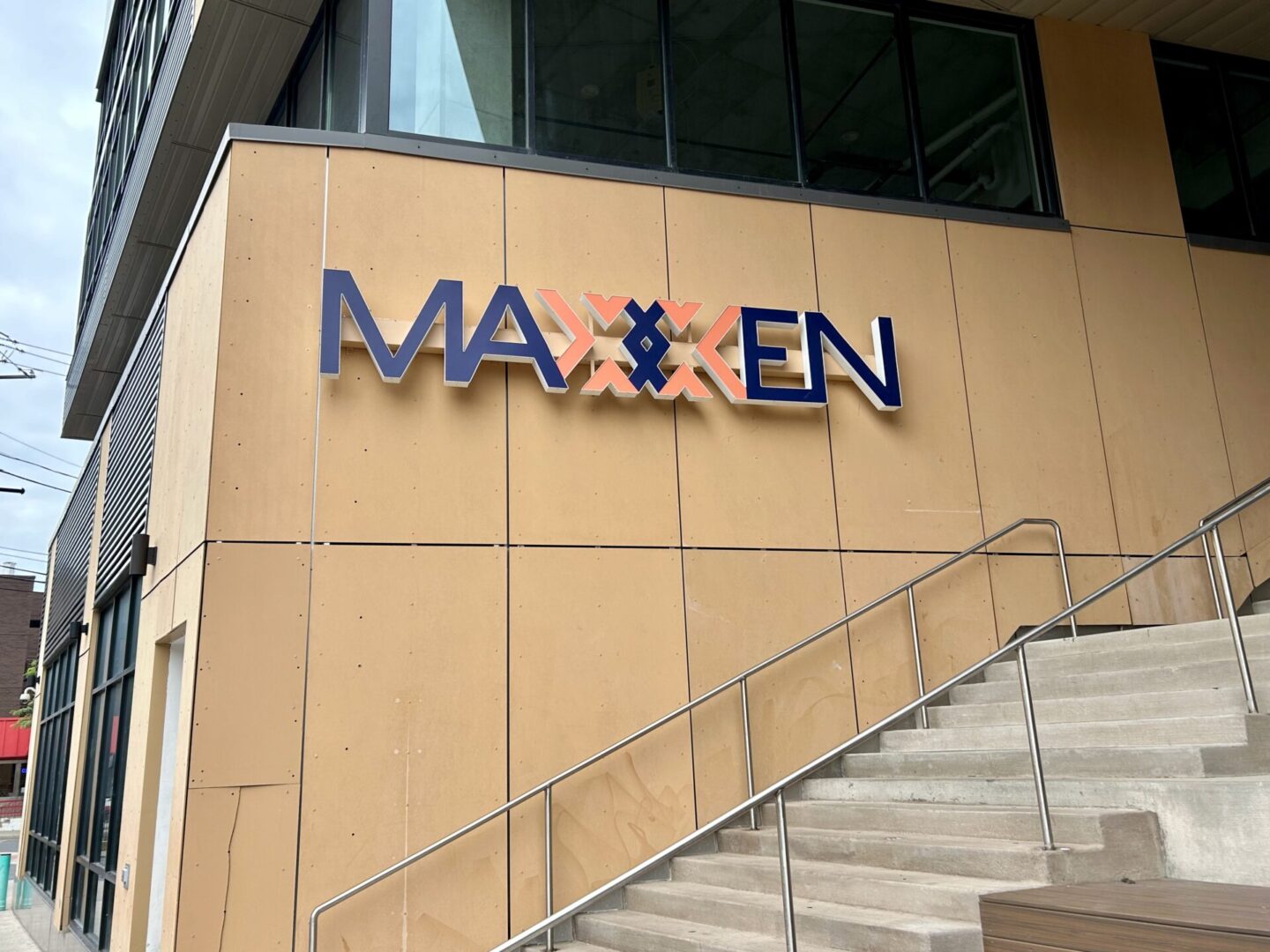State College Borough Council appears poised to approve a liquor license transfer, with some attached conditions, for a new Buffalo Wild Wings location downtown.
Council held a brief discussion about the request during it work session on Monday, ahead of a scheduled vote on Aug. 19, with no members voicing objections to either the transfer or the conditions proposed at a public hearing last week.
State College Wing Company LLC is planning to acquire a liquor license from the former Don Patron Mexican Grill in Patton Township and transfer it to The Maxxen, 131 Hiester Street, for the Centre Region’s first Buffalo Wild Wings restaurant. The LLC is a subsidiary of Grube Family Investments, the largest privately owned franchisee of Buffalo Wild Wings.
Because State College exceeds the Pennsylvania Liquor Control Board’s quota of 1 restaurant liquor license per 3,000 population, license transfers into the borough require council approval. The borough can reject, approve or require an agreement to conditions for approval.
Since intermunicipal license transfers became permitted in the early 2000s, State College has historically required conditions for approval, mostly in an effort to prevent more businesses that are primarily bars for college students.
Chief among those conditions has typically been a food-to-alcohol ratio requirement. At the Aug. 5 public hearing, police Chief John Gardner proposed that no more than 40% of the restaurant’s revenue can come from alcohol sales.
The condition received no argument from the applicant. Average alcohol sales for Buffalo Wild Wings locations represent only 14.5% of revenues, with 81.5% from food and the remainder from non-alcoholic beverages, said attorney Mark Kozar, who is representing the franchisee for the transfer.
Council member Kevin Kassab said on Monday he planned to vote in favor of the transfer with the conditions, but had a bigger picture question.
“I guess my big question is, when do we stop allowing liquor licenses to come into the borough?” Kassab said.
License transfer approvals are a decision for council to make, Borough Manager Tom Fountaine said, but traditionally it has approved restaurants that also serve alcohol as part of their business model as opposed to bars that also serve food.
He added that other proposed conditions prohibiting the license to be transferred to another business or location in the borough without council approval are “another safeguard on simply getting a license in State College and then turning it into a bar license.”
The business model presented by the franchisee allayed any concerns that the restaurant would be “a major burden on the community,” council member John Hayes said.
“I want to balance the needs of the community against the needs of business owners to make a profit,” Hayes said. “I think that we have hit the right balance here, given that the business model for this restaurant is exactly that. It’s not a bar pretending to be a restaurant.”
He also noted testimony from the commercial real estate broker for The Maxxen and other local properties, who explained the challenges in filling empty retail space.
One of those challenges is that ground floor commercial space in the new high-rises downtown is “gray shell,” meaning it has four walls and conduits with nothing else, and potential business owners must build out that space. It’s been an ongoing concern for community members and borough officials, who have been seeking ways to fill it.
“In this case it’s not replacing another establishment. It’s literally building out a completely unbuilt area that we’ve heard from the community over and over again that we have so much unbuilt ground floor retail,” council member Matt Herndon said. “It being more food than alcohol and it filling out this gray shell space, that makes me weigh a little bit more on the yes side.”
In response to a question from Herndon, Fountaine confirmed that after the improvements are made, the space will be reassessed for property tax value.
Other proposed conditions for transfer approval include a 22-ounce maximum for alcoholic drink sizes and a requirement that alcohol can only be sold when food is available for purchase.
Mitchell Grube, chief operating officer of Grube Inc., said neither posed a problem. Buffalo Wild Wings’ largest drink size is an 18.5-ounce tall beer, and Kozar described the business as a a “family-friendly, casual dining sports restaurant,” where alcohol is a complement to the food, not the primary attraction.”
Plans for the Buffalo Wild Wings include seating for 260 — 214 inside and 46 on a patio. It is tentatively expected to be open 11 a.m. to 11 p.m. Sunday through Wednesday and 11 a.m. to 1 a.m. Thursday through Sunday, and at the start will employ 80 to 100 people.
State College Borough Council will vote on the liquor license transfer during its regular meeting at 7 p.m. on Monday, Aug. 19, in the Municipal Building, 243 S. Allen St.



